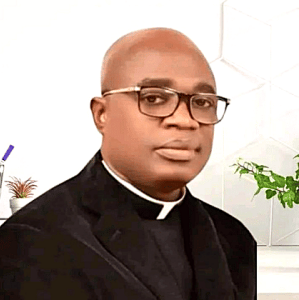
Suspected Fulani herdsmen last week invaded three predominantly Christian communities in Benue state, Nigeria, killing six Christians, injuring another and kidnapping eight residents, area sources said.
The attacks on the villages of the villages of Okpomaju, Odudaje and Asa in Otukpo County on Monday and Wednesday (Feb. 3 and 5) scattered residents and reduced homes to ashes. Catherine Sewuese Anene of the Benue State Police Command told Christian Daily International-Morning Star News that six persons were killed, eight kidnapped and one wounded in the attacks.
Herdsmen invaded the villages and shot at villagers trying to escape, said area resident Agaba Onyilokwu. Another resident, Oga Sunday, told Christian Daily International-Morning Star News that he narrowly escaped as he was shot at and chased from his farm by a group of the armed herders.
Maxwell Ogiri, chairman of the Otukpo Local Government Council, said he reported the attacks on Monday and Wednesday to security agencies, and soldiers and police were deployed to the area.
Edwin Ochai, president of a diaspora group from the area, issued a statement asserting that violence that began in Agatu Local Government Area has tragically spread to Apa, Otukpo, and other parts of Benue south, “leaving a trail of bloodshed, destruction and despair.”
“The most recent attack in Okpamaju, a hitherto peaceful community in Otukpo LGA, has claimed the lives of several innocent villagers, reduced homes to ashes, and shattered families,” Ochai said. “We condemn in the strongest terms the deafening silence and inaction of our leaders at all levels – local government chairmen, state legislators, federal representatives, and the senator representing Benue South.”
He called on leaders in the Benue South senatorial district, including local government chairmen, state legislators, federal representatives and the senator, to urgently convene a security summit to focus on solutions to protect communities, including the mobilization of local security outfits and resources.
“The time to act is now – before our communities are entirely wiped off the face of the earth,” Ochai said. “The attackers must be pursued, arrested, and brought to justice. Failure to act will only embolden them further. Leaders at all levels must understand that their positions are not for decoration but for service.”
Ochai said representatives were expected to stand firm and speak out boldly, both within and outside their chambers, to demand immediate action.
“Silence is not an option,” he said. “If the state government cannot guarantee our safety, we call for a state of emergency to be declared in Benue South. The lives of our people cannot continue to be treated as expendable.”
He called for a comprehensive plan to support victims, including provision of relief materials, rebuilding destroyed homes and ensuring the safe return of displaced persons.
“This is a clarion call to all leaders – political, traditional and religious – to wake up to their responsibilities,” Ochai said. “The time for complacency is over. If you fail to act now, you will not only lose the trust of the people but also bear full responsibility for the consequences of your inaction.”
Kennedy Angbo, a member of the Benue State House of Assembly representing the Otukpo-Akpa area, said in a statement that “three days of sustained attacks in the area have left many villagers injured, displaced and communities burned down.”
Benue Gov. Hyacinth Iormem Alia on Thursday (Feb. 6) issued a statement appealing for calm among residents, assuring them that security agencies have been directed to intensify surveillance in the area to prevent further attacks.
“The state government will take all necessary actions to ensure that those who disrupt the peace of this community will be apprehended,” Alia said.
Nigeria remained among the most dangerous places on earth for Christians, according to Open Doors’ 2025 World Watch List of the countries where it is most diffiucult to be a Christian. Of the 4,476 Christians killed for their faith worldwide during the reporting period, 3,100 (69 percent) were in Nigeria, according to the WWL.
“The measure of anti-Christian violence in the country is already at the maximum possible under World Watch List methodology,” the report stated.
In the country’s North-Central zone, where Christians are more common than they are in the North-East and North-West, Islamic extremist Fulani militia attack farming communities, killing many hundreds, Christians above all, according to the report. Jihadist groups such as Boko Haram and the splinter group Islamic State in West Africa Province (ISWAP), among others, are also active in the country’s northern states, where federal government control is scant and Christians and their communities continue to be the targets of raids, sexual violence, and roadblock killings, according to the report. Abductions for ransom have increased considerably in recent years.
The violence has spread to southern states, and a new jihadist terror group, Lakurawa, has emerged in the northwest, armed with advanced weaponry and a radical Islamist agenda, the WWL noted. Lakurawa is affiliated with the expansionist Al-Qaeda insurgency Jama’a Nusrat ul-Islam wa al-Muslimin, or JNIM, originating in Mali.
Nigeria ranked seventh on the 2025 WWL list of the 50 worst countries for Christians.
Numbering in the millions across Nigeria and the Sahel, predominantly Muslim Fulani comprise hundreds of clans of many different lineages who do not hold extremist views, but some Fulani do adhere to radical Islamist ideology, the United Kingdom’s All-Party Parliamentary Group for International Freedom or Belief (APPG) noted in a 2020 report.
“They adopt a comparable strategy to Boko Haram and ISWAP and demonstrate a clear intent to target Christians and potent symbols of Christian identity,” the APPG report states.
Christian leaders in Nigeria have said they believe herdsmen attacks on Christian communities in Nigeria’s Middle Belt are inspired by their desire to forcefully take over Christians’ lands and impose Islam as desertification has made it difficult for them to sustain their herds.





